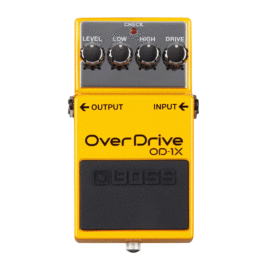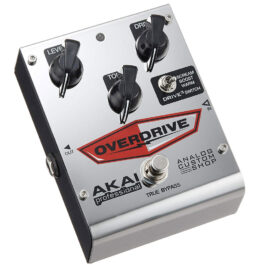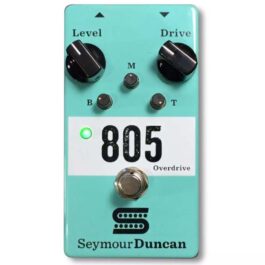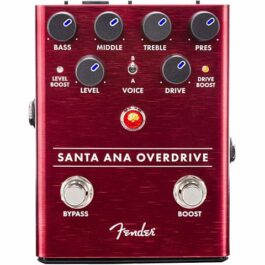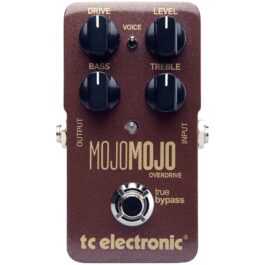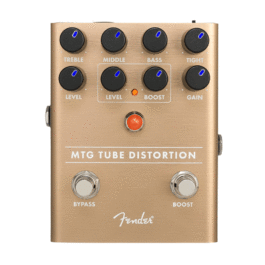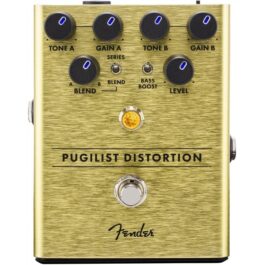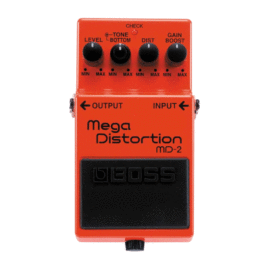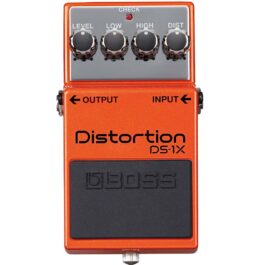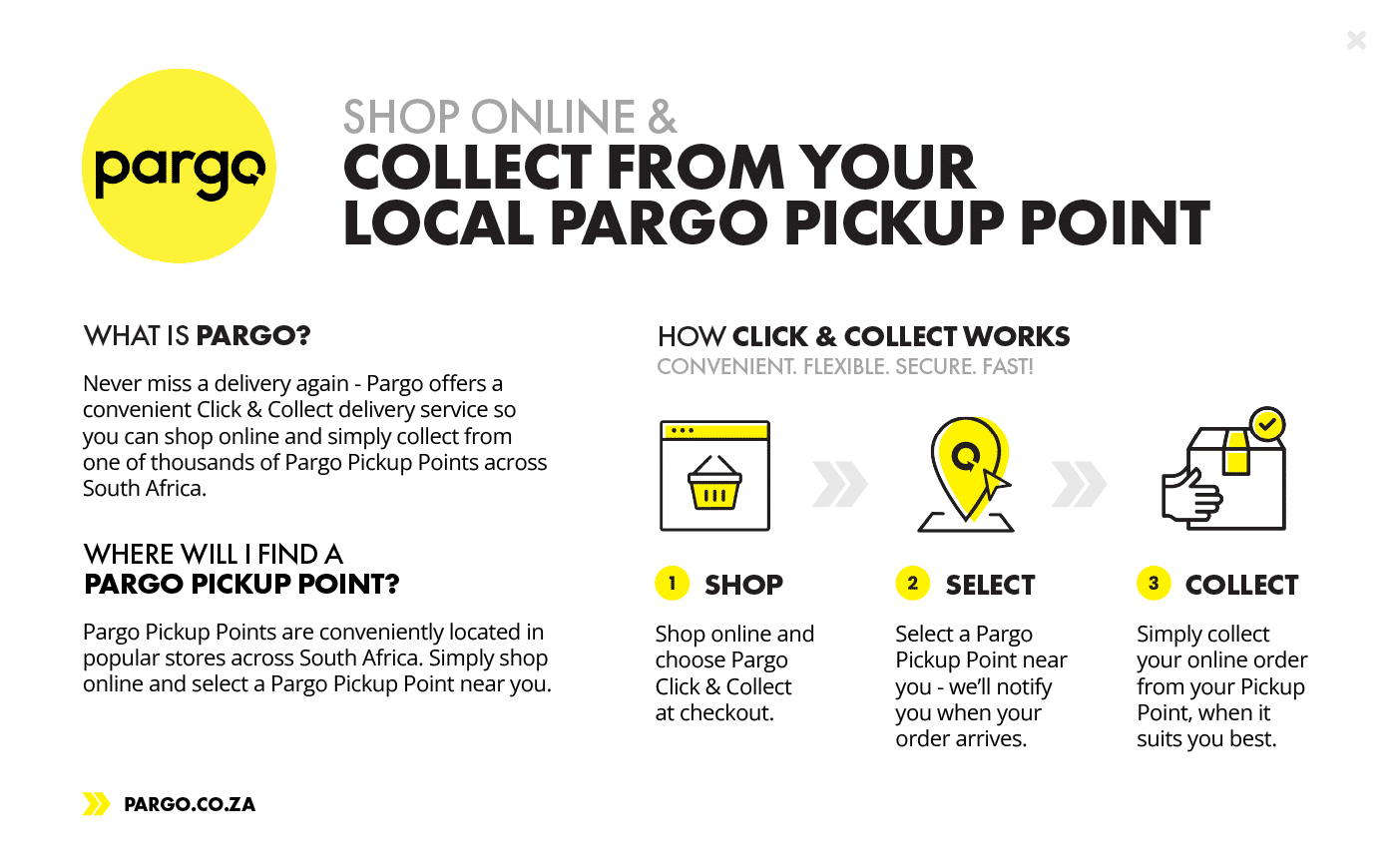
Blog
Overdrive vs. Distortion… What’s the Difference!?
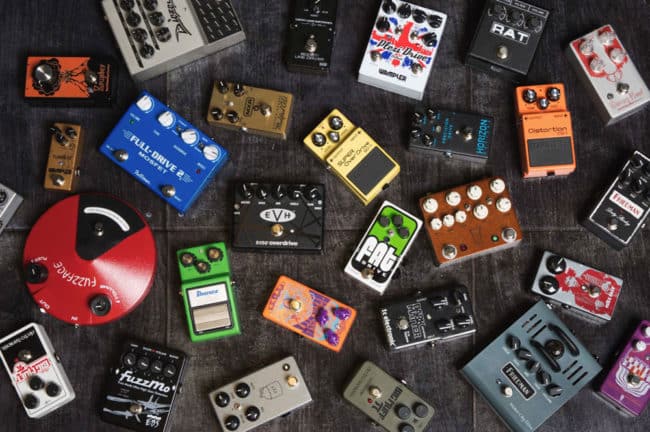
We’ve all been there, and some of you may be there now. You’re looking for the guitar effect pedal that’s going to make you sound like your favourite guitarist, but you have no idea where to start. You’ve heard the words overdrive and distortion, but don’t quite understand what they mean. You know that they sound different, but don’t quite know why.
If any of this sounds familiar, we’ve got the answers you need.
They’re both means of making your clean, crisp guitar, sound dirty… but how?
Overdrive
Let’s start where it all began, with Overdrive. When electric guitars were first invented, amplifiers were obviously needed to produce sound. And of course, as musicians do, players needed to be louder, so amps were pushed far beyond their capacity, causing them to, quite literally, overdrive the vacuum tubes that powered the amplifiers. This process of pushing amplifiers too far caused the sound to break up. Guitarists quickly realized this break-up actually sounded great. And thus, overdrive was born, with effects pedals soon being developed to create overdrive without pushing the amplifier to its limits.
Overdrive Example from Boss OD-1X
-
- Guitar & Bass, Guitar Compact Pedals, Guitar Effects
Boss OD-1X Overdrive Effects Pedal
-
R4,950R3,465FREE DELIVERY - Select options
-
Request Stock
- Out of Stock
- Guitar & Bass, Guitar Effects, Guitar Compact Pedals
Akai DRIVE3 Overdrive Effects Pedal
- R1,095FREE DELIVERY
- Select options
-
-
Request Stock
- Out of Stock
- Guitar & Bass, Guitar Effects, Guitar Compact Pedals
Seymour Duncan 805 Overdrive Effects Pedal
-
R6,995R5,245FREE DELIVERY - Select options
-
-
- Guitar & Bass, Guitar Effects, Guitar Compact Pedals
Fender Santa Ana Overdrive Effects Pedal
-
R8,295R7,050FREE DELIVERY - Select options
-
Request Stock
- Out of Stock
- Guitar & Bass, Guitar Compact Pedals, Guitar Effects
TC Electronics Mojo Mojo Overdrive Effects Pedal
- R1,500FREE DELIVERY
- Select options
-
Distortion
Distortion was, in many ways, the evolution of overdrive. Pedal and amp manufacturers were looking for new ways to create that characteristic broken-up, dirty sound. This led to an entirely new approach; altering the guitar’s electrical signal directly. This came in the form of a rougher signal, more harmonic saturation, and more sustain. Put simply, distortion is a more intense version of overdrive, with a bit more control.
Distortion Example from Boss DS-1X
-
- Guitar & Bass, Guitar Effects, Guitar Compact Pedals
Fender MTG Tube Distortion Effects Pedal
-
R7,495R6,370FREE DELIVERY - Select options
-
Request Stock
- Out of Stock
- Guitar & Bass, Guitar Effects, Guitar Compact Pedals
Fender Pugilist Distortion Effects Pedal
-
R4,195R3,565FREE DELIVERY - Select options
-
-
- Guitar & Bass, Guitar Compact Pedals, Guitar Effects
Boss MD-2 Mega Distortion Effects Pedal
-
R3,495R2,445FREE DELIVERY - Select options
-
- Guitar & Bass, Guitar Effects, Guitar Compact Pedals
Boss DS-1X Distortion Effects Pedal
-
R4,995R3,495FREE DELIVERY - Select options
You may be thinking, “Surely this begs the question; which is best?” Well, the answer, as with most things regarding musical gear, is down to preference. If you’re looking to sound like Angus Young, with a raw, unruly, break-up, maybe an overdrive pedal is for you. If you’re looking to sound like Kurt Cobain, with and earth-shattering guitar sound, you might be after a distortion pedal.
But beyond any technical breakdowns, there’s only one way to find out what works for you, and that’s to experiment, so maybe the question is… why not both?
Like this article?
GET MORE LIKE IT SENT TO YOUR INBOX
with our weekly email newsletter.
Leave a comment
You may also like


Why YOU should play the Ukulele!



